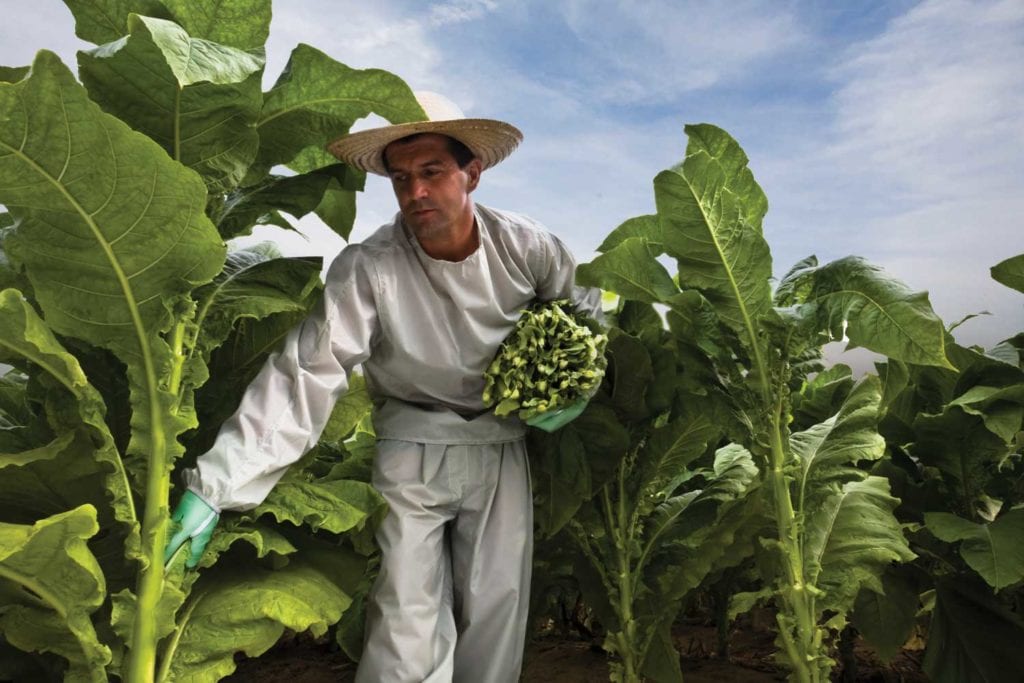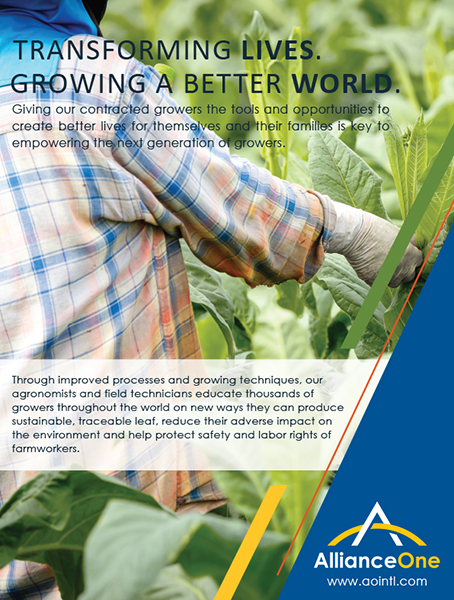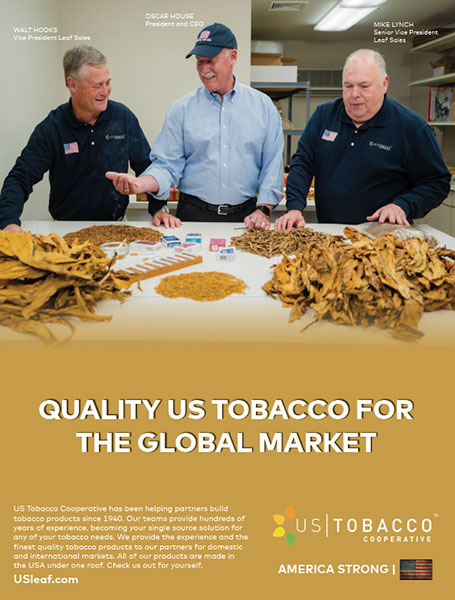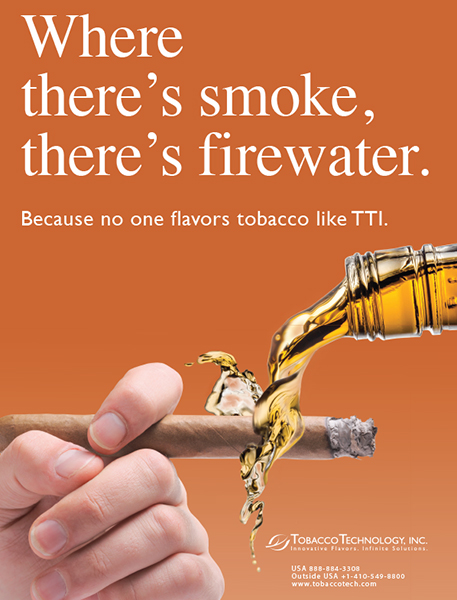
Jennie Galbraith discusses British American Tobacco’s human rights initiatives
By Stefanie Rossel
In December 2020, British American Tobacco (BAT) became the first tobacco company to launch a human rights report. Tobacco Reporter spoke with Jennie Galbraith, the company’s head of environmental, social and governance (ESG), who is responsible for overseeing the development and implementation of BAT’s sustainability agenda and leads the group’s ESG engagement with investors.

Tobacco Reporter: Your company has been engaged in the field of human rights (HR) since 2000, with measures and achievements previously being reported in your corporate social responsibility reports. Why have you decided to publish a separate HR report?
Jennie Galbraith: We have a long-standing commitment to respect the human rights of our employees, the people we work with and the communities in which we operate. We have achieved a lot over the last 20 years, and we are setting the bar even higher. The HR report presents the progress we have made, highlights our ongoing work and outlines our plans for the future. This report is aligned with the United Nations Guiding Principles Reporting Framework, which provides comprehensive guidance for companies to report on how they respect human rights in accordance with the UN Guiding Principles for Business and Human Rights. We also wanted to publish a human rights-focused report to provide our stakeholders with more in-depth information on our ambitions and our efforts to assist in addressing impacts across our global business and supply chain. We are proud to be the first company among our peers to publish such a report.
What are the most pressing HR issues in your tobacco supply chain?
Temporary workers, use of family labor in small-scale farming and high levels of rural poverty make agriculture a particularly vulnerable sector for human rights risks.
For example, according to the Office of the High Commissioner for Human Rights, poverty can lead to farmers taking their children out of school to work on the land or to overlook health and safety standards. That is why enhancing farmer livelihoods is central to our approach to achieving our goal of eliminating child and forced labor by 2025.
We have robust policies in place outlining our commitment to preventing child labor and exploitation of labor, underpinned by due diligence, monitoring and remediation programs. We also know that human rights issues in agricultural supply chains are very complex and cannot be single-handedly solved by one company alone. So, we adopt a collaborative approach. For example, it has been 20 years since BAT became a founding member of the Eliminating Child Labor in Tobacco Growing (ECLT) Foundation.
We support our directly contracted farmers in a number of other ways. This includes education and training on the latest sustainable agricultural methods, including new seed varieties that improve yields, and support with diversifying their crop to provide additional income and enhance food security. For example, in 2020, 93 percent of tobacco farmers in our supply chain reported growing other crops, including fruit, vegetables, maize and soy. We also provide our contracted farmers with training to help build their skills, knowledge and awareness on a range of topics—from human rights and health and safety to farm business management and women’s empowerment. For example, in 2020, 2,887 women’s empowerment training sessions were held, with 16,658 attendances.

In your report, an external sustainability expert on HR issues singled out three emerging and interlinked issues that will affect tobacco farmers in the near future: the changing climate, women’s empowerment and the need for alternative incomes. Of the three, climate change is likely to have the most far-reaching impact. What measures is BAT taking to tackle this issue?
To address climate change, we provide all our contracted farmers with a wide range of best practice environmental information and training as well as introducing them to sustainable farming practices and technologies, developed by our global leaf agronomy research. Beyond the farmers we contract directly with, we have long-term strategic partnerships with many of our third-party suppliers, and we expect them to provide the farmers they source from with similar support services. The Sustainable Tobacco Program (STP), an industry-wide initiative, sets the standard we expect from all our tobacco suppliers worldwide. The STP is aligned to international standards, including those of the International Labor Organization and the UN Guiding Principles, and it is our policy that all our leaf operations and third-party suppliers participate in the program.
Examples of our sustainable farming initiatives include sustainable fuels and curing technologies to help preserve forest resources and methods to reduce agrochemical use and preserve soil health. For example, since 2016, 99 percent of wood used by our contracted farmers for curing fuels has been from sustainable sources. We also support our farmers in using water more efficiently. In Pakistan, for example, drip irrigation technology has helped reduce farmers’ water use by up to 40 percent.
Sustainable farming practices not only bring environmental benefits; they also help to build farmers’ resilience to the impact of climate change. In some countries, we also facilitate crop insurance for our contracted farmers. This can be crucial in providing a safety net for unexpected events and natural disasters, such as floods and droughts.
Please explain the minimum standards expected from suppliers.
At a minimum, the standards we expect regarding human rights from our suppliers in relation to their own employees and contractors—including permanent, temporary, contract agency workers and migrant workers—include that they:
- Provide equal opportunities to, and fair treatment of, all workers
- Work to eliminate any form of harassment and bullying within the workplace, whether it is of a sexual, verbal, nonverbal or physical nature
- Provide a safe working environment, adopt procedures to identify and address workplace health and safety risks, implement safe working practices and provide, where relevant, appropriate personal protective equipment to prevent occupational injuries or illnesses
- Provide fair wages and benefits, which comply at least with applicable minimum wage legislation and other applicable wage and working time laws or collective bargaining agreements
- Ensure operations are free from child labor. Specifically, following the guidelines of the International Labor Organization that any work that is considered hazardous or likely to harm the health, safety or morals of children should not be done by anyone under the age of 18 (or 16 under strict conditions); the minimum age for work should not be below the legal age for finishing compulsory schooling and, in any case, not less than the age of 15; where local law permits, children between the ages of 13 and 15 years old may do light work, provided it does not hinder their education or vocational training, or include any activity that could be harmful to their health or development—for example, handling mechanical equipment or agrochemicals. We also recognize training or work experience schemes approved by a competent authority as an exception.
- Ensure operations are free from exploitation of labor. Specifically, ensuring their operations are free from slavery, servitude and forced, compulsory, bonded, involuntary, trafficked or unlawful migrant labor.
- Ensure the right to freedom of association. Specifically, ensuring all workers are able—subject to applicable laws—to exercise their right to freedom of association and collective bargaining, including the right to be represented by recognized trade unions or other bona fide representatives.
- Ensure responsible sourcing of “conflict minerals,” including cobalt, gold, tantalum, tin and tungsten, and the ores from which they originate, originating from conflict-affected and high-risk areas that could directly or indirectly finance or benefit armed groups or human rights abuses. Where products or materials supplied to the group contain such minerals, suppliers should work to exercise appropriate due diligence and perform a reasonable country of origin inquiry, including requiring its suppliers to engage in similar due diligence.

How has the Covid-19 pandemic impacted on your HR programs and efforts?
With the pandemic bringing human rights into even sharper focus, it is imperative that we continue to work in partnership with others to support communities that may be particularly vulnerable to both the virus and its long-term economic implications. For example, we are supporting tobacco-growing communities and have worked to keep farms and trading floors operating safely, have distributed personal protective equipment and other essential items, and in countries such as Kenya, we have enhanced access to clean water and hand-washing facilities.
We have continued to strive to do more despite the pandemic and have set ourselves ambitious targets. We aim for our tobacco supply chain to be free of forced and child labor by 2025. I believe our purpose-led strategy and focus on delivering a better tomorrow have put us in a better position to manage these issues and to support our people and partners around the world.
Something that’s also been in the news a lot is the Covid-19 vaccine candidate, developed by BAT’s U.S. bio-tech arm, Kentucky BioProcessing (KBP). We are proud to play our part in the global fight against this virus and—hopefully—we can contribute to the solution.
What developments do you expect for 2021 as the pandemic continues to affect the world? What further measures will BAT take to support its farmers and suppliers?
With the U.N. Climate Change Conference and the U.N. Biodiversity Conference both set to take place this year, the “E” in ESG will continue to be a prominent feature on business agendas. But this does not mean human rights will be taking a back seat. There will be a keen focus on human rights and the impact of the pandemic on progress in this area. In addition to the normal economic challenges facing rural communities, there are fears that Covid-19 could increase poverty, and this could lead to more incidents of child labor. We believe this is a very real risk and are calling on everyone involved in global agriculture supply chains to look at child and forced labor solutions differently.
For our part, we will continue our well-established support for our contracted farmers and suppliers across the world, focusing on strong policies, extensive due-diligence and effective remediation to create shared value for all. We continuously work to improve and strengthen our approach, including examining new ways to train our field technicians to help them identify child labor risks and spot early warning signs, how we can better address root causes and how we can help improve farmer livelihoods.

While you have made significant progress in the tobacco supply chain as far as HR are concerned, your New Categories portfolio presents challenges different from those in the leaf supply chain. What are these challenges, and how are you addressing human rights?
Our supply chain for our New Category business can have many layers of suppliers between the raw materials and the final product. This complexity can increase risks for both the security of supply and human rights. We are focused on mapping our supply chain and building relationships with critical lower-tier suppliers. All our tier 1 New Category suppliers are subject to our supply chain due diligence program, including human rights risk assessments and independent audits of workplace conditions. Since 2018, this has included tier 2 suppliers too. Suppliers are prioritized for audits based on the level of risk identified, against independent human rights indices developed by Verisk Maplecroft. We conduct an annual risk assessment on 100 percent of our existing materials suppliers. In addition, before we start working with a new product materials supplier, it must undergo an independent audit performed by our partner, Intertek.
We also need to monitor closely for conflict minerals in our electronic supply chain. The main challenge here is that the mines are often many layers away from BAT, meaning that we do not have control over their activities. However, we are committed to responsible mineral sourcing as outlined in our Supplier Code of Conduct. In 2019, we implemented new due diligence procedures, aligned to the OECD’s internationally recognized guidelines for responsible mineral supply chains. Last year, we published our first Conflict Minerals Report.
In our first year of monitoring for conflict minerals, we were pleased by the strong level of engagement from our suppliers, with a 100 percent response to our due diligence enquiries. The suppliers were at varying levels of maturity in implementing their own conflict minerals due diligence. We are working with all the suppliers concerned to help them address these gaps and support them in building capacity and strengthening due diligence measures.












